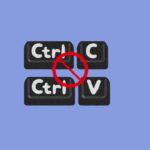Q: What should I do if I mistakenly submitted to a predatory journal and they are now using coercive tactics?
I submitted my paper to a journal after checking its impact factor (IF) and Committee on Publication Ethics (COPE) information on the homepage. However, I soon experienced something strange, as they asked me for a publication fee on completing the peer review and proof-reading procedure in just three weeks. This seems to be a predatory journal. There is no IF criterion as I’ve first seen and they are not a member of COPE. So, I requested them for the withdrawal of my manuscript, upon which they insisted that I pay a withdrawal fee. Then, I replied to them as mentioned in the Q&A Forum here. However, they said that they would publish my paper as a retraction article if I do not pay the publication fee or the withdrawal fee. What should I do?
The situation is quite unfortunate, but what is impressive is how aware you are of the publishing process in general and of predatory publishing in particular. So, it might seem surprising that you fell into this ‘trap.’ But don’t feel too bad about that. This recent external post talks about how there is a great spectrum in predatory publishing.
Also, just as authors are getting smarter about these practices, these publishers seem to be getting equally smart about appearing to be genuine. For instance, many publishing sites nowadays include names or logos of industry bodies and committees such as COPE to appear legitimate to uninformed authors. It’s not always easy in such cases to immediately say who’s authentic and who not. For more insights on this aspect, you may go through this query by another user: Can one believe all the abstract- and indexing-related information that is provided on a journal's home page?
Coming to your query, here’s what you can do.
- Stand your ground. You should not give in to their coercive tactics or threats. In most cases, they usually give up once they realize how aware and firm the author is. If you remain resolute, they are likely to relent and allow you to withdraw without paying any kind of charges.
- Involve your supervisor (if possible). Based on your profile and level, you may wish to discuss this matter with your supervisor, especially if it is likely to get more serious. As a senior researcher, your supervisor could speak with them more firmly, compelling them to back out.
- Seek guidance from COPE (if needed). This is mainly because you mentioned COPE a couple of times. COPE provides guidance on various scientific publishing issues, though mainly for members. (So, you’ll need to register.) Also, they may not intervene on your behalf, but only provide guidance. Once the publisher knows that you are in touch with COPE, their case is likely to become weaker as it can be clearly established whether or not they are a COPE member. You may write to COPE here.
In the best-case scenario that they let you withdraw, you can submit the paper elsewhere, but of course after checking the next journal credentials properly and after informing them of the publication history of the paper.
In the worst-case scenario that they don’t back out and go ahead with the publication, there isn’t much you can do. You can treat it as a learning experience and move on. Of course, you can’t then put the article on your resume. That is unfortunate given the effort you no doubt put into it. But surely, this will compel you to be doubly sure the next time.
All the best for a smooth, rapid resolution.
For more ways to deal with predatory publishers, you may go through these earlier queries by other users:
- How should I deal with a predatory publisher?
- Is it okay to withdraw an editorial article from a journal if I cannot pay the publication fees?
- Can I withdraw a paper submitted to a journal after signing the copyright form?
To become familiar with newer discussions around predatory publishing, you may go through these resources:


